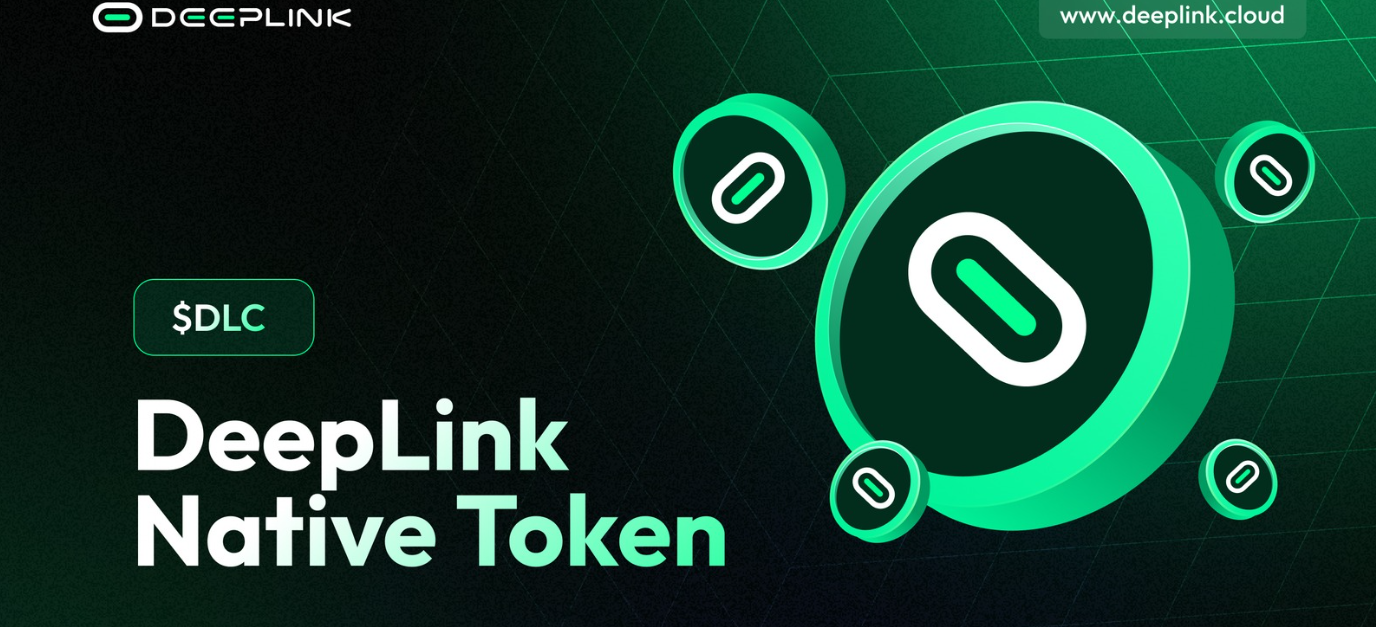DeepLink Native Token_Exclusive Summary ($DLC Token)

Overview
DeepLink Protocol is a decentralized cloud gaming platform that leverages the power of AI, blockchain technology, and GPU computing to offer an innovative gaming experience. The native token of this ecosystem, known as the DLC Token, plays a central role in facilitating transactions, incentivizing participants, and ensuring the platform’s operational efficiency.
Key Features and Utility of DLC Token
Payment for Services
DLC Tokens are used to pay for cloud gaming services. Users can rent GPU resources to play high-performance games on devices without the need for expensive hardware. The token also facilitates payments for accessing gaming resources from both data center servers and individual users’ computers.
Incentivization
GPU Providers: Individuals or data centers who provide GPU computing power are rewarded with DLC tokens. This includes rewards for participating in network computing power competitions like the Orion GPU Race, where miners can earn from a large pool of DLC tokens for contributing to the network’s infrastructure. Node Owners: Owning DeepLink nodes, which are distributed in form of NFTs, entitles users to bandwidth, GPU mining and airdrops of DLC tokens. Nodes are sold in tiers, with prices ranging from $30 to $155 and 30,000 airdrops per node. Owning a node helps in decentralizing the network by providing computational resources.
Tokenomics Total Supply: The total supply of DLC tokens is set at 100 billion, with allocations for various purposes including mining rewards, community airdrops, and ecosystem development. Deflationary Mechanism: A significant part of the DLC tokens used for transactions, especially those related toGPU rentals, are burned, creating a deflationary pressure on the token supply, which will increase its value over time.
Airdrops and Rewards Airdrops: DeepLink has conducted airdrops with several major exchanges like Binance, Bybit, OKX and other ecosystem partners. DeepLink will also conduct airdrops for holders of DBC Tokens on the DeepBrain Chain, converting DBC to DLC at a 1:1 ratio under specific conditions. Mining Rewards: There are structured rewards for CPU traffic mining and GPU mining, with a 20% of the total token supply dedicated to these activities.
Ecosystem Engagement DLC tokens are used within the platform’s NFT marketplace for purchasing NFTs linked to premium gaming features, cloud internet café services, and other exclusive benefits. The token is integral to the platform’s strategy for expanding its user base and enhancing user engagement through various promotional events and partnerships.
Market and Adoption
The DLC token will be listed on various exchanges for trading, where live price feeds will be available. DeepLink has aimed at broadening its reach through strategic partnerships by offering competitive rewards for network participation.
Conclusion
DeepLink Protocol’s DLC token is designed to be the backbone of a decentralized, high-performance cloud gaming ecosystem, integrating AI and blockchain for enhanced gaming experiences. Its utility extends from being a payment method to incentivizing network growth and participation, with a deflationary model potentially adding value over time. The project appears to be actively engaging its community through various token allocation, node sales and competition reward strategies.